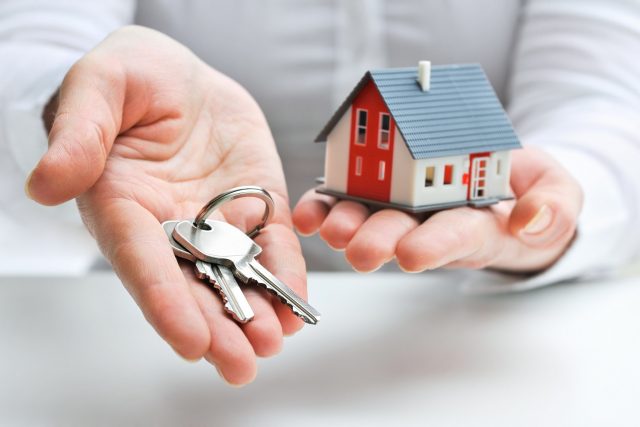House Hunting Tips
Renting a house can be a task of mammoth proportions as we attempt to find a place that suits our budget and appeals to us on other parameters. Each of us has preferences in terms of the kind of place we want to live in. So, if you follow a few simple tips, it would be easier to find a place that suits your requirements. Before you start looking at homes, sit down and make a list of the comforts you’re looking for in a home, ranked from most to least important. Keep those priorities in mind as you look at homes, and update the list based on the homes you go to see. Here are some points to mull over:
Good Ventilation: Today, many apartments are poky and built very close to one another. If fresh air is important to you, check out all the doors and windows. Are there exhaust fans or provisions for them, can you leave your windows open or does the smell of garbage permeate the room if you do? In summer months, badly ventilated flats can get unbearably hot and with our tropical weather, that can be terrible.
Privacy: Again, today with flats being constructed choc-a-bloc, privacy is a big problem. In most places, if you open your windows, you can look into the neighbor’s house and vice versa. A lack of privacy can be very annoying in the long run.
Neighbors: On the topic of privacy, nosy neighbors can be an irritant, If you guard your privacy zealously, look out for them when you go to see the house – most often you can spot them!
Tidy and easy to manage: If both of you are working and have minimal household help, check if the flat is easy to maintain. The size of the house will also determine this.
Good fittings: Most people overlook the importance of this. If your bathroom and kitchen fittings are old and rusted, chances are that you will have to shell out money later to replace leaking taps and pipes and clean out clogged drains. (Most landlords do not pay for small incidental expenses.) With water shortages looming over our heads, the last thing one needs is leaking taps!
Built-in cupboards in the bedrooms and kitchen are a bonus. If your landlord has provided only shelves, renegotiate the rent. After all, if there are no built-in cupboards, you will need to spend on cupboards. If you keep clothes and foodstuffs on open shelves, chances of everything collecting dust are very high.
Quiet: Are you the type who hates noise? If so, check out how silent or noisy the neighborhood is. For instance, if you rent a house on one of the busy highways, you can be sure that the noise of heavy traffic will be relentless even during the night.
Parking space: Most important for those who have cars. Most new apartment complexes have parking space but many of the old ones don’t.
Guest room /study room: If you have regular visitors from out of town you need a guest room with an attached bathroom for your guests. If you work from home, you may require a separate study for working undisturbed.
Serene surroundings: Most of us would like our houses to be in an area where there is not just peace and quiet but also beauty, greenery and cleanliness.
Water supply: Probably the most important factor you need to check is this. With clean drinking water at a premium and the threat of water shortage looming on the horizon, you need to check whether there is 24-hour water supply; if so, is the water drinkable or saline. If you must buy water, how much is the outlay every month, etc.
Security: We all would like to live in areas that are safe. It’s not enough if your flat or home has security; check out how safe the neighborhood is – can you go for a walk in the evening, if you need to dash down to a shop is it safe, etc.
Transport facilities: If you have no transport of your own, find out how close the bus-stops and auto stands are.
Water-logging: Unless you enjoy wading through mucky water during the rains, find out how well the street your house is on drains during the monsoons. This is even more crucial if you take a bus or auto to work because you could find yourself stranded at home otherwise!
The lease agreement
Renting property can give rise to disputes between landlords and tenants which could be avoided if, as a tenant, you take certain steps to protect yourself prior to renting.
Most landlords expect you to sign a lease which is an agreement between the landlord and tenant. It establishes the length of time the tenant may occupy the property and the amount of rent the tenant will be required to pay. The lease may also contain several other provisions regarding the rights and obligations of both the landlord and the tenant.
Questions to ask before moving in:
- How long is the term of the lease?
- What is the rent amount and how much advance needs to be paid?
- When must the rent be paid?
- What charges are included in the rent? In other words, does the rent cover charges for electricity, gas, water, garbage service, etc., or is the tenant responsible for those charges? (This needs to be checked carefully or you may find some landlords expecting you to pay the water tax, etc)
- Are pets allowed?
- Can the tenant bring in roommates to share the rent?
- Will the landlord paint the house before occupation? Will the house be painted every year/every two years?
- How many months’ notice must the tenant give the landlord prior to terminating the lease?
- What does the landlord require in terms of cleaning the premises before the tenant vacates?













































